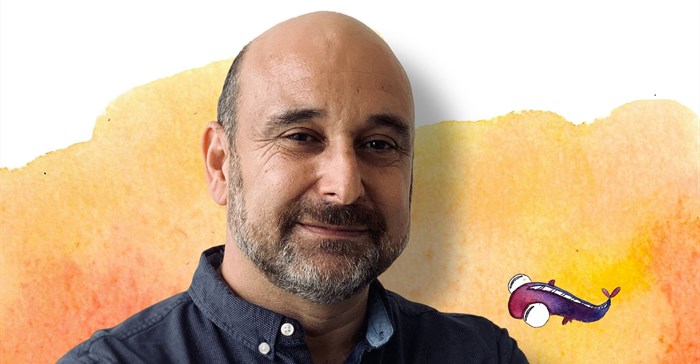
Subscribe & Follow
Jobs
- Experienced Model Booker (Agent) Cape Town
- B2B Marketing Consultant George
- Senior Marketing Coordinator Johannesburg
- Junior Copywriter and Proofreader Cape Town
- Marketing Manager Johannesburg North
- Email Marketing Specialist Johannesburg
- Client Services and Admin Johannesburg
- Creative Director Stellenbosch
- Portfolio Executive Pretoria
- Marketing Coordinator Pretoria
The South African marketing landscape, games and change: sitting down with Glenn Gillis

We sat down with Glenn Gillis, CEO of Sea Monster, to find out how the marketing landscape has changed in South Africa, how Sea Monster is adapting, and advice moving forward for all marketers.
Pursuing the dream
Sea Monster was born from passion. Seeing the ability of young creatives to work and shape the content narrative and giving them the platform to do so is the true birthplace of the company. From this, there was a realisation that they could take this skill from the entertainment industry and apply it to general corporate communications learning. “We were passionate about unlocking learning capabilities in companies, but also their audiences,” said Gillis.
According to Gillis, brands are about stories you tell with the product. “We use our skills in animation to do that in a way that cuts across cultures and literacy levels,” he said. It’s all about visual storytelling and it brings a fresh perspective to how people see and interact with marketing.
Lighthouse and innovation
For years, Sea Monster has aimed to prove the value of games and animations as a marketing tool. They've already developed these assets for numerous brands to share their story in an engaging and fun way, but one of Sea Monsters’ goals is to expand this idea.
Lighthouse is their newest answer. Lighthouse is a platform which is based on the concept that people learn better through interaction. Optimised for low income countries and contexts, Lighthouse runs as a web-based digital engagement platform.
The world wide web has given us an array of possibilities for interaction - you have minigames, competitions, quizzes, etc., but so far they have all needed to function through an application. “Web has got the beautiful advantage that you don’t need to download,” explained Gillis. “Essentially, brands come on board, they want to run a campaign, and they can quickly pull down a whole lot of these functionalities around how to engage customers, and then reward them.”
The marketing space can be challenging to engage with when you need something done quickly. Lighthouse was born from the idea that everybody should be able to access quality marketing strategies that are flexible and interactive. “If what you can do is unlock the motivation that people have to want to engage in something, then the nature of that relationship is fundamentally different,” said Gillis. “That’s a really powerful idea that underpins Lighthouse.”
The second idea which speaks to what Lighthouse is trying to achieve is instilling the belief that people can influence their own reality. “It sounds like a noble dream, doesn’t it?” asked Gillis. “In our little way, Lighthouse is saying, 'Listen, if you’re good at that game, we are going to reward you.' So there’s this noble idea that underpins it, but it’s a very practical thing, because I do want to reward the person who engages with my brand. And now we’ve got the data and we’ve got the platform that allows for that to happen.”
The not-so-new normal
A global event like the Covid-19 pandemic undoubtedly changes, and has changed, the way we work and live our daily lives. Sea Monster has primarily been a remote working company from the start, and when Covid hit, they tried to be more brave about their decisions.
Gillis expressed that there are opportunities now where instead of spending money to fly people out to events that host a couple of hundred of guests, you can save by hosting an online presentation which houses 200,000 guests. Even though there have been significant challenges to face, there are moments of change we can take positive advantage of.
“We are, every day, putting a message out there that there is hope, that there is this ability to trade our way out of the situation,” said Gillis. “We’re not going to do this by doing things that no longer work, or not backing opportunities, not backing South Africa. It’s a call to corporates everywhere: make the call, make the decision, let’s get going.
Sea Monster was one of three winners of the U.S.-Africa Tech Challenge, for their innovative approach of using games and animation to combat Covid-19 and vaccine misinformation.

Related
ChatGPT the fastest-growing subscription-based service worldwide growing 296% 5 Nov 2024 #BehindtheIMC: Glenn Gillis on gaming and marketing 12 Sep 2024 Gamification: The game-changer in your marketing mix 19 Aug 2024 LinkedIn news team launches 3 games 9 May 2024 Elon Musk wants to remove the block option on Twitter, now X 21 Aug 2023











